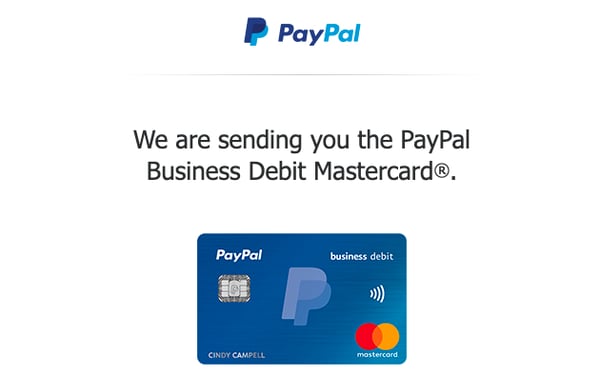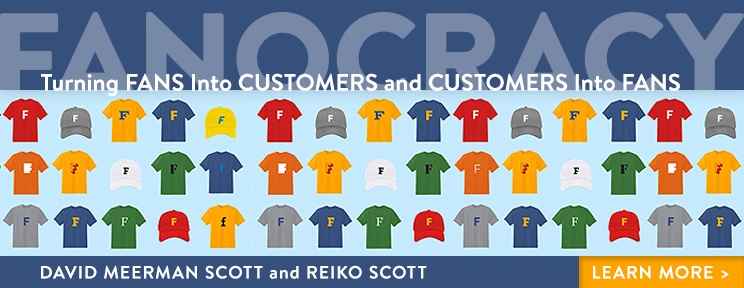 Trust and honesty are hallmarks of building fans of a company, product, or idea. When a company breaks its customers’ trust, it takes a very long time to earn it back.
Trust and honesty are hallmarks of building fans of a company, product, or idea. When a company breaks its customers’ trust, it takes a very long time to earn it back.
In early November, I received an email from PayPal telling me that they will be sending me, without my permission, a PayPal branded Mastercard unless I use my valuable time to opt out. Signing people up for accounts without their permission is exactly what Wells Fargo did in its corporate scandal, and it destroyed consumer trust in the company.
How A Company Loses Consumer Trust
Wells Fargo was founded in 1852 in San Francisco and developed a strong reputation over many decades. In fact, in 2015, the company was ranked the 22nd most admired company in the world by Fortune Magazine.
All that came crashing down when it was revealed in 2016 that Wells Fargo employees created more than a million checking and savings accounts and issued over a half million credit cards that customers hadn’t authorized. The company was fined $185 million and faces billions of dollars in lawsuits as a result of the illegal practice.
As a result, a strong reputation built by nurturing fans since the days of the stagecoach was destroyed.
Don't Push Unnecessary Products on Your Customers

Creating meaningful experiences for your customers can build fandom around your business; burdening your customers with unwanted experiences can just as quickly drive them away from you. PayPal’s “benefit” of a new credit card falls into the latter category.
The subject line of the email I received from PayPal was very vague: "David, Your business account has been updated. Learn more inside."
I almost didn’t open the email because it looked like a simple change of the terms and conditions.
I did open it. And I couldn’t believe what I was seeing.
The email body said this (I have edited for length by removing the steps to update an address):
"As a valued customer, we've updated your business account to include the no-annual-fee PayPal Business Debit Card. We plan to send you the card in the next few weeks, unless you choose to opt out below.
(If you've already opted out, please disregard this message.)
The PayPal Business Debit Card does not create a new account. It's a benefit we would like to add to your current business account, at no cost to you. It's not a credit card and no credit report was pulled.
Our decision to share this card with you is based on your excellent history as a PayPal customer.
Your PayPal Business Debit Card will be shipped to the Home address linked to your account.
If you do not want to receive this card, log in to PayPal to opt out by November 17, 2019, and we won't ship it.
We greatly appreciate your business and hope you'll enjoy the added benefit of the PayPal Business Debit Card."
Bad customer experiences waste time and cause confusion
It took me about ten minutes to figure out how to opt out of this unwanted debit card!
Yes, there was an opt-out link in the email, but I don’t trust such links because of the explosion of phishing attempts that use emails similar to the one that PayPal sent me. With data privacy breaches filling the news headlines, you can never be sure what will happen to your information if you fall victim to a scam.
Instead, I went into my PayPal account like they said “If you do not want to receive this card, log in to PayPal to opt out by November 17, 2019, and we won't ship it” and searched and searched for a long time to figure out how to opt out.
After about five minutes I gave up and went back to the email and decided to click the link. After studying the URL carefully, I did opt out via the link.
However, the damage, for me, had been done. It took ten minutes of my time to say no to something I didn’t want!
PayPal, you can do better.
Respect customers to turn them into fans
With the amount of data in the hands of marketers, businesses can create increasingly targeted customer retention and loyalty campaign based around offerings like PayPal’s.
But without gaining trust from customers first, unsolicited offerings will at best, annoy your customers, and at worst turn your customers off from you or risk the privacy of their information.
Interested in learning about the right way to create fans of your business? In my new book, Fanocracy: Turning Customers into Fans and Fans into Customers, I talk about approaches to building fandom through amazing customer experiences and genuine human connection.
